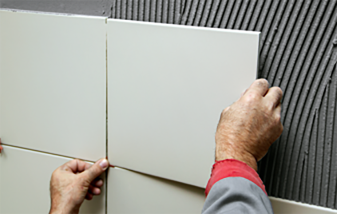
Авг . 31, 2024 07:20 Back to list
what is hydroxyethyl cellulose
What is Hydroxyethyl Cellulose?
Hydroxyethyl cellulose (HEC) is a non-ionic, water-soluble polymer derived from cellulose, which is a natural polymer obtained from plant cell walls. It is widely used in various industries, including pharmaceuticals, cosmetics, food, and construction, due to its unique properties and versatility.
What is Hydroxyethyl Cellulose?
In the pharmaceutical industry, HEC is commonly used as an excipient in the formulation of tablets and topical preparations. Its excellent thickening and stabilizing properties make it an ideal choice for controlling the viscosity of gels and ointments. By improving the flow characteristics of formulations, HEC ensures uniformity and stability, which are crucial for effective drug delivery.
what is hydroxyethyl cellulose

The cosmetic industry also benefits significantly from hydroxyethyl cellulose. It is frequently included in shampoos, conditioners, creams, and lotions due to its ability to enhance texture and improve the feel of products. HEC serves as a thickening agent, providing a desirable consistency and stability while also offering moisturizing properties. Furthermore, it acts as a film-forming agent, which helps create a protective layer on the skin and hair, contributing to a smooth and silky finish.
In the food industry, HEC is used as a food additive, where it functions as a thickener, stabilizer, and emulsifier. It helps maintain the texture of various food products, enhancing their mouthfeel and overall quality. Additionally, HEC is often utilized in gluten-free baking to improve the texture and moisture retention of gluten-free products, making it a valuable ingredient for those with dietary restrictions.
The construction industry relies on hydroxyethyl cellulose in the formulation of building materials such as wall paints, adhesives, and tile grouts. In this context, HEC acts as a water-retaining agent, ensuring adequate moisture is retained during the curing process, which is vital for the strength and durability of construction materials.
In summary, hydroxyethyl cellulose is a versatile and valuable polymer used across multiple sectors. Its unique characteristics, such as solubility, thickening capability, and stabilizing effects, make it an essential ingredient for a wide variety of products. As industries continue to innovate and seek sustainable solutions, the importance of HEC is likely to grow, reinforcing its role in modern formulations and applications.
-
Versatile Hpmc Uses in Different Industries
NewsJun.19,2025
-
Redispersible Powder's Role in Enhancing Durability of Construction Products
NewsJun.19,2025
-
Hydroxyethyl Cellulose Applications Driving Green Industrial Processes
NewsJun.19,2025
-
Exploring Different Redispersible Polymer Powder
NewsJun.19,2025
-
Choosing the Right Mortar Bonding Agent
NewsJun.19,2025
-
Applications and Significance of China Hpmc in Modern Industries
NewsJun.19,2025







